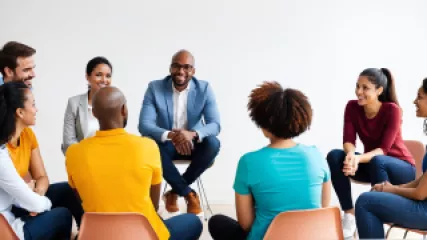Mastering Social Skills: An Expert Interview
Introduction
Social skills play a crucial role in our daily lives. They are the tools that allow us to navigate social interactions, build relationships, and thrive in various social settings. While some individuals naturally possess strong social skills, others may struggle with social interactions and find it challenging to connect with others.
In this expert interview, we had the privilege of speaking with Ayla Weaver, an expert in social skills development. Ayla has spent years studying and teaching techniques to enhance social interactions, improve social behavior, and foster social adaptability. Join us as we delve into the world of mastering social skills and gain valuable insights from Ayla's wealth of knowledge.
Interview
Q: What are social skills, and why are they important?
Ayla Weaver: Social skills refer to the abilities and behaviors that enable individuals to interact effectively with others. They encompass a wide range of skills, including communication, active listening, empathy, assertiveness, conflict resolution, and nonverbal cues interpretation. Social skills are vital because they contribute to successful relationships, increased self-confidence, improved mental well-being, and overall life satisfaction.
Q: How can individuals enhance their social interactions?
Ayla Weaver: Improving social interactions starts with self-awareness. Individuals should reflect on their strengths and areas that need improvement. Active listening is a fundamental skill that can greatly enhance social interactions. By fully engaging in conversations, maintaining eye contact, and showing genuine interest in what others have to say, individuals can build stronger connections and foster meaningful relationships.
Additionally, practicing empathy and understanding others' perspectives is essential. Empathy allows individuals to relate to and connect with others on a deeper level. It involves showing compassion, validating emotions, and actively seeking to understand different viewpoints.
Furthermore, individuals can work on their nonverbal communication skills. Body language, facial expressions, and tone of voice all play a significant role in how messages are interpreted. By being mindful of these nonverbal cues and aligning them with their verbal communication, individuals can improve the effectiveness and clarity of their social interactions.
Q: How can someone improve their social behavior?
Ayla Weaver: Improving social behavior requires self-reflection and a willingness to make positive changes. One important aspect is self-monitoring. Individuals should pay attention to their own behavior and assess how it impacts others. Are they interrupting others frequently? Are they dominating conversations? Identifying these behaviors allows individuals to make conscious efforts to improve and adjust their social behavior accordingly.
Another crucial aspect is learning to manage emotions effectively. Emotion regulation enables individuals to respond appropriately to social situations, rather than reacting impulsively. Taking a moment to pause, breathe, and reflect before responding can prevent misunderstandings and conflicts.
Additionally, developing social awareness is key. This involves being attuned to social cues, understanding social norms, and adapting one's behavior accordingly. By observing and learning from others, individuals can enhance their social behavior and navigate social situations more smoothly.
Q: How can individuals improve their social adaptability?
Ayla Weaver: Social adaptability is the ability to adjust and thrive in various social environments. It involves being flexible, open-minded, and willing to step out of one's comfort zone. One way to enhance social adaptability is by exposing oneself to diverse social settings. Engaging in activities or joining groups with people from different backgrounds and interests can broaden one's perspectives and foster adaptability.
Building resilience is also crucial. Social interactions may sometimes lead to challenges or conflicts. Developing resilience allows individuals to bounce back from setbacks, learn from experiences, and continue growing socially. It involves reframing negative experiences, focusing on solutions rather than dwelling on problems, and maintaining a positive mindset.
Lastly, seeking feedback and actively working on self-improvement is essential for social adaptability. Feedback from trusted friends, mentors, or professionals can provide valuable insights and help individuals identify areas for growth.
Conclusion
Social skills are not innate talents; they can be learned and developed with practice and dedication. By enhancing social interactions, improving social behavior, and fostering social adaptability, individuals can navigate social settings with ease and form meaningful connections. Remember, mastering social skills is a lifelong journey, and continuous growth in this area can lead to fulfilling relationships and a more enriching life.
Expert Interview with Ayla Weaver






